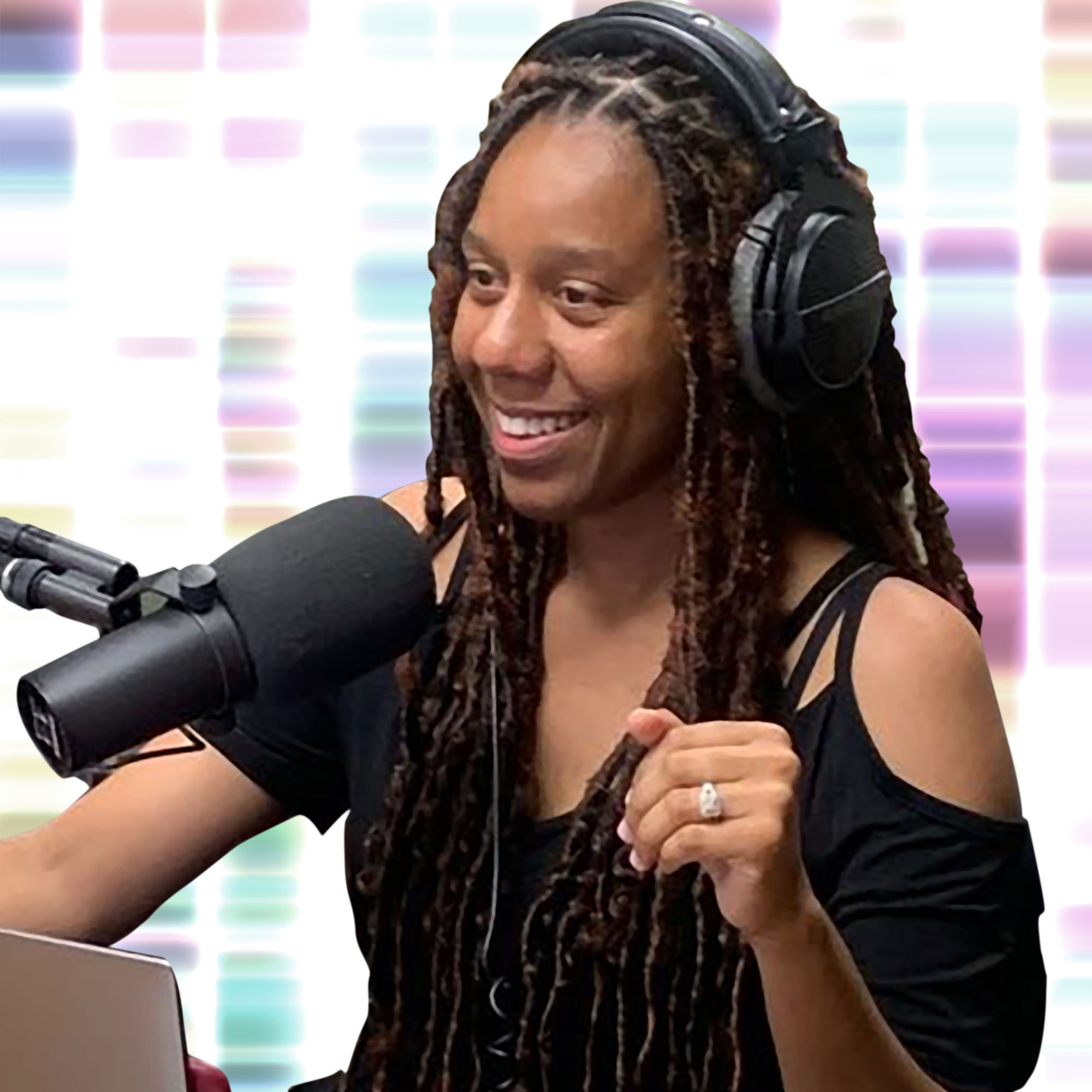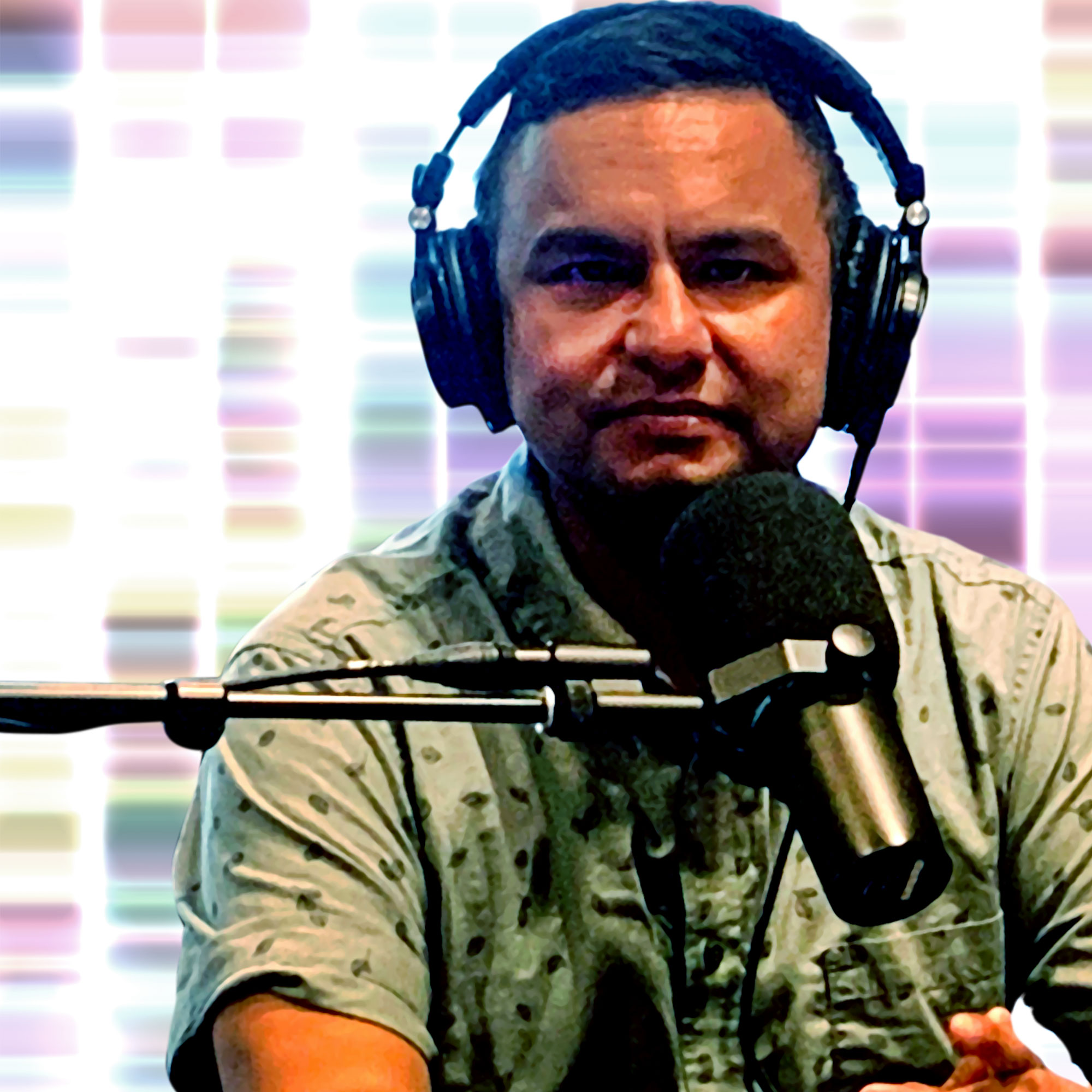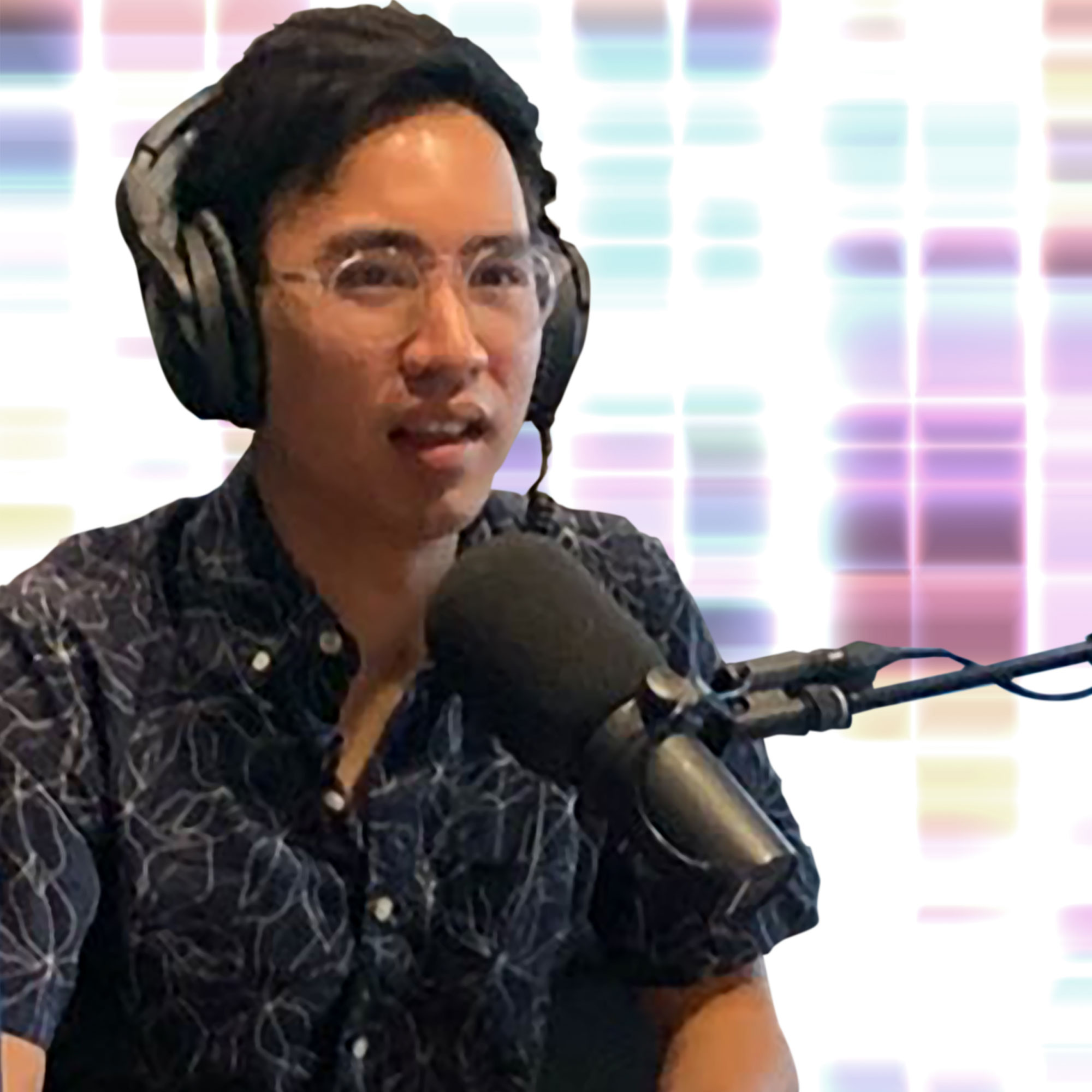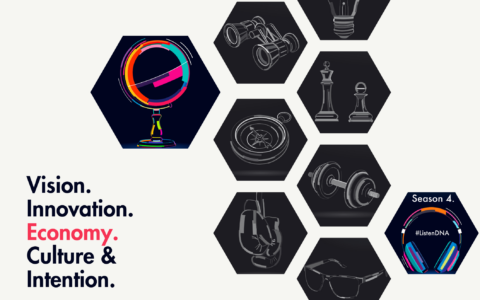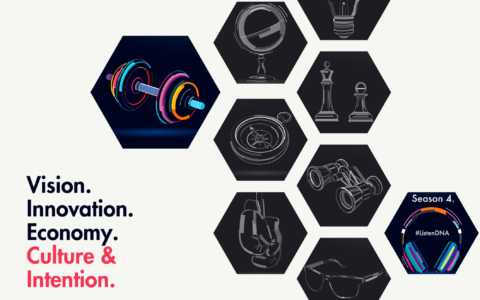Episode 3 – Surviving vs. Thriving: Social Determinants of Wellness
Sometimes the ‘This is Fine’ meme is the pop culture epitome of how we feel – and yet it’s hard to pinpoint just why. This episode, “Surviving vs Thriving,” explains how what people pick up through osmosis impacts wellbeing.
Over the last couple of years there people in the U.S. and the world have self-reported having negative experiences, and are less likely to feel well-rested, according to the Gallup Global Emotions Report. Guests on previous episodes talked about the spike in anxiety and depression across the age spectrum. This week, four guests look at this global phenomenon through very different lenses: religion and culture, federal and local policy, socioeconomic divides, and how we use language (nouns, verbs and pronouns).
Those big picture trends – digital ads, work culture, media and imagery, inflation, climate volatility, racism and discrimination – aggregate in ways you potentially have yet to consider.
“It creates stress, it creates anxiety and then the body reacts. All of a sudden you have headaches and you don’t know why you have headaches. You have aches, you have different things because the body is keeping count of all of these various traumas and all of these various incidences,” said Jessica Ganzie, MDiv, senior program manager within the Office of Diversity and Inclusion.
Get ready for a spirited dialogue that takes on real life examples… and get introduced to an inspirational program that’s been changing the trajectory for high school and college students for well over a decade.
“We hear from students all the time about the Aspirnaut program changing their lives, giving them an opportunity that they never thought would have existed, or putting them on a path that they never thought they could achieve. It’s really rewarding to hear those stories,” said Rachel Baugh, associate director of Aspirnauts, a program at VUMC designed to set youth and young adults on a course into STEM fields.
VUMC is the only organization in Tennessee to repeatedly be recognized by the Human Rights Campaign Healthcare Equality Index for its commitment to adopting LGBTQ-inclusive patient, visitation and employment policies. The LGBTQ Health Clinic is a destination for people all around the Southeast region, an emblem of the hostility that shapes the lives – and the physical and mental wellbeing – of the LGBTQ community.
“Policy can create harm, but it could also do a lot of good. I often think about policy as a treatment for population health. Nathaniel described some research on marriage equality and how it’s led to some improvements in health and access to care. But LGBTQ health disparities are still there. They haven’t gone away. There are still disparities in mental health and health outcomes and health behaviors – a lot of it deriving from discrimination, stigma,” said Gilbert Gonzales, PhD, Assistant Professor at the Center for Medicine, Health & Society, the Program for Public Policy Studies, and the Department of Health Policy. “I don’t think marriage equality is enough. If we think about [policy] as a prescription: the dosage isn’t strong enough.”
Mental Health Resources
- NIH grant to address chronic diseases that affect populations with health disparities
- Spirituality may help reduce end-stage kidney disease risk
- Effort seeks to enroll more Black patients in lung cancer trials
- Effort seeks to enhance cancer screening for Hispanic/Latina women
- Group’s efforts lead to removal of race as a variable in common test of kidney function
- Addressing Racial Equity at VUMC and VUSM
- VUMC Aspirnaut Program
- Science career “pipeline” garners national attention
- NBC News: Arkansas scientist behind ‘magic’ school bus expands learning opportunities for kids
- VUMC, Harvard Medical School named to join AMAF consortium to address LGBTQ+ health disparities
- Buttons demonstrate wearers’ pronoun use
- Pronoun Pride Day at VUMC set for June 22
- VUMC again named a Leader in LGBTQ+ Healthcare Equality
- VUMC faculty receive grant to expand LGBTQ voices in biomedical research
- Study finds sexual minority communities disproportionately engage in behaviors to reduce medication costs
- Vanderbilt Health Program for LGBTQ Health
- Vanderbilt Program for LGBTQ Health
- JAMA Psychiatry: Adverse Childhood Experiences and Mental Distress Among US Adults by Sexual Orientation




